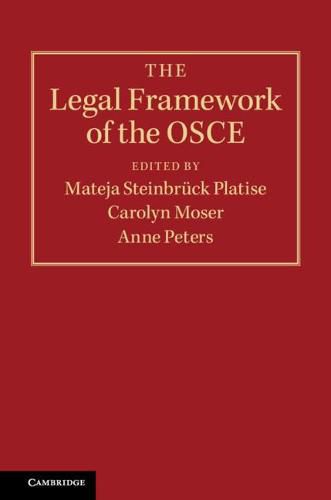Readings Newsletter
Become a Readings Member to make your shopping experience even easier.
Sign in or sign up for free!
You’re not far away from qualifying for FREE standard shipping within Australia
You’ve qualified for FREE standard shipping within Australia
The cart is loading…






The Organization for Security and Cooperation in Europe (OSCE), the world’s largest regional security organisation, possesses most of the attributes traditionally ascribed to an international organisation, but lacks a constitutive treaty and an established international legal personality. Moreover, OSCE decisions are considered mere political commitments and thus not legally binding. As such, it seems to correspond to the general zeitgeist, in which new, less formal actors and forms of international cooperation gain prominence, while traditional actors and instruments of international law are in stagnation. However, an increasing number of voices - including the OSCE participating states - have been advocating for more formal and autonomous OSCE institutional structures, for international legal personality, or even for the adoption of a constitutive treaty. The book analyses why and how these demands have emerged, critically analyses the reform proposals and provides new arguments for revisiting the OSCE legal framework.
$9.00 standard shipping within Australia
FREE standard shipping within Australia for orders over $100.00
Express & International shipping calculated at checkout
The Organization for Security and Cooperation in Europe (OSCE), the world’s largest regional security organisation, possesses most of the attributes traditionally ascribed to an international organisation, but lacks a constitutive treaty and an established international legal personality. Moreover, OSCE decisions are considered mere political commitments and thus not legally binding. As such, it seems to correspond to the general zeitgeist, in which new, less formal actors and forms of international cooperation gain prominence, while traditional actors and instruments of international law are in stagnation. However, an increasing number of voices - including the OSCE participating states - have been advocating for more formal and autonomous OSCE institutional structures, for international legal personality, or even for the adoption of a constitutive treaty. The book analyses why and how these demands have emerged, critically analyses the reform proposals and provides new arguments for revisiting the OSCE legal framework.